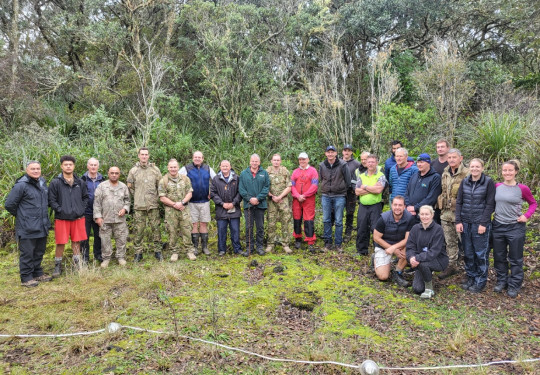New Zealand Army challenges during Rotary Youth Leadership Awards
One-hundred-and-one aspiring young community leaders have no idea what’s coming. Sitting in a community hall in Auckland’s Eastern Beach, on a rainy Tuesday night, they think this will be the end of a long day.
20 July, 2022
In storms Captain James Gordon to the stage.
“Effective now, you’re under the direction of the New Zealand Army,” he shouts.
Soldiers from 3/6 Battalion clutch up the unsuspecting students and march them out into the dark night – destination unknown.
This is the fourth day of the Rotary Youth Leadership Awards’ (RYLA) week-long leadership development programme that brings together a diverse range of young people aged 20-28; from engineers to accountants and bankers, who have shown leadership potential.
The Army plays a vital role in identifying and developing their leadership skills over 48 hours at a secret location.
Twenty-six-year-old Aucklander, Kathleen Oneroa, said the uplift was a complete surprise.
“It was really abrupt, and it felt really turbulent, we thought we were going on a hike. For four days we’d been following a timetable and then we got split up and thrown into this. It was dark outside and raining, we didn’t know where we were going. It was really turbulent,” the oral health therapist from Health New Zealand said.
Once arrived, the students are given a tarp and a few tools to set up camp for the night, and if they make it through that, 20 leadership mentors from five different units will see them at first light to start on training.
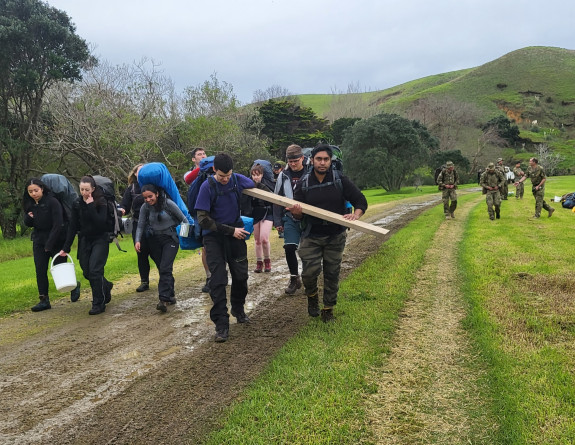
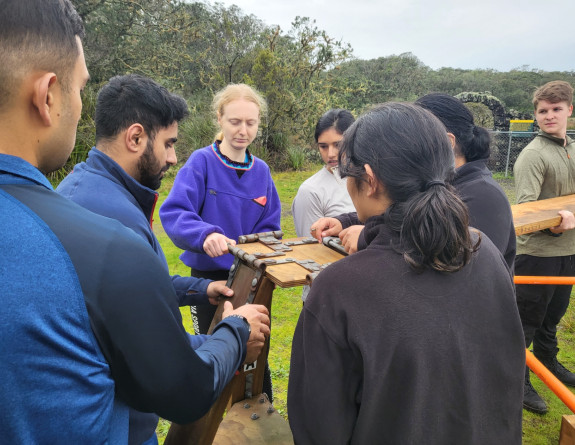
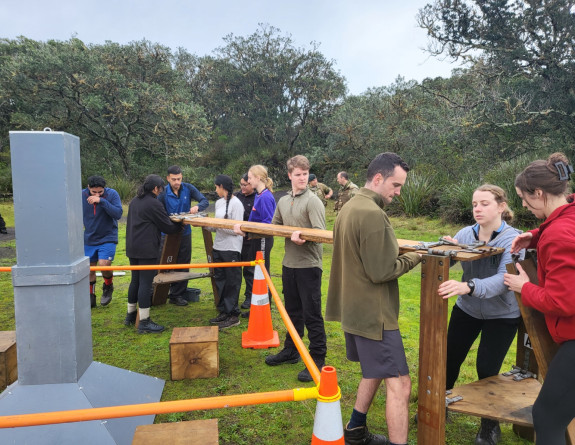
The development exercises are based around 20 evolutions designed to test how the students work in a team, demonstrate their leadership, and develop self-awareness.
Lieutenant Colonel Jon Atkinson has designed the evolutions since 1999 and said he’d put his “heart and soul” into the programme.
“I’ve developed the evolutions over time. They’re designed to extend a leader and to be challenging but achievable. A good evolution requires a student to rethink and adapt to a new solution, to challenge them so we can see what they’ve got.”
“I love to see the growth from these young civilians, that’s why I do it. It’s so rewarding. There is so much fantastic change.”
The Army has been involved in the RYLA programme since 1998 and uses the PIXIE and DEB DESC (Delegating, Example, Benefit, Describe, Example, Suggestion, Consequence) feedback sessions, which are central to the students’ development.
“This type of approach helps a mentor assess each leader. It’s important that it’s a circular rather than linear approach,” LTCOL Atkinson said.
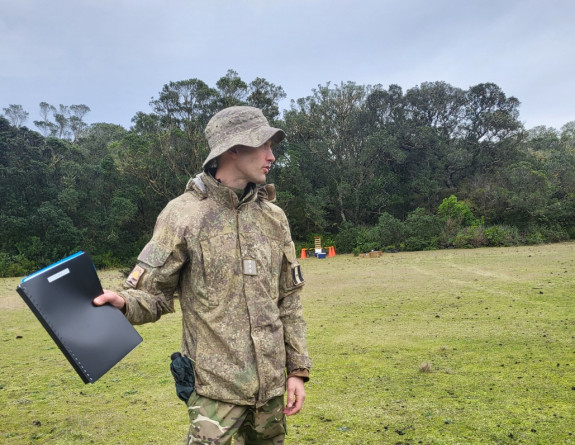
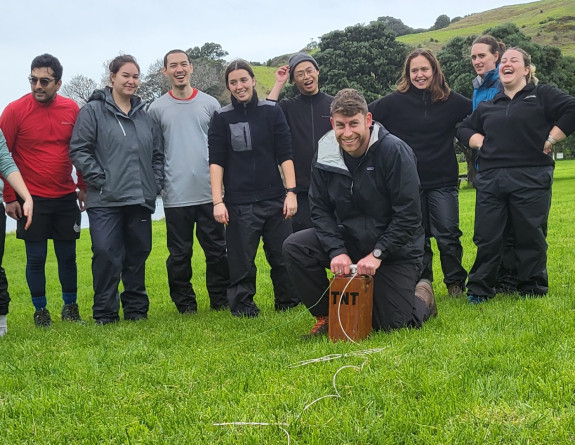
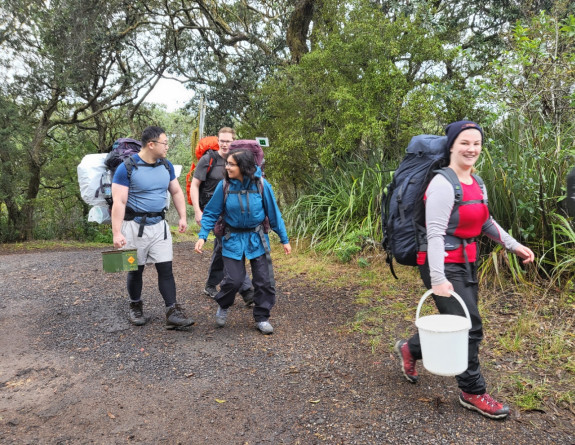
Ms Oneroa said the feedback sessions had really helped the female students with assertiveness.
“A lot of the girls were feeling like they were being bossy, even though they were actually being assertive. When I was little my nickname was ‘Constable Kath’, but this is teaching me there’s a way you can be assertive and that delegating isn’t a bad thing,” she said.
“Being forced to all be a leader has given us lots of opportunities. It makes me want to lead in a way that’s much more passionate.”
The programme is also used to conduct leadership training for army junior leaders. It runs concurrently with the Junior Non-Commisioned Officer (JNCO) development programme to prepare junior leaders who will engage in Training and Doctrine Command’s JNCO and Section Commander career progression.
Warrant Officer Class 2 Mani Wichman has been in the Reserves for 39 years and has been mentoring RYLA students since 2002.
“My favourite part is night-time, the challenges they face when they’re tired and it’s dark. Seeing them achieve goals individually and as a team when they’re right out of their comfort zone,” he said.
WO2 Wichman will be celebrating 40 years in reserves next year and he’s still feeling the rewards of the RYLA programme.
“It gives me a sense of achievement when I’ve managed to give the students my experience and knowledge. A lot of them don’t know just what they can achieve,” he said.
